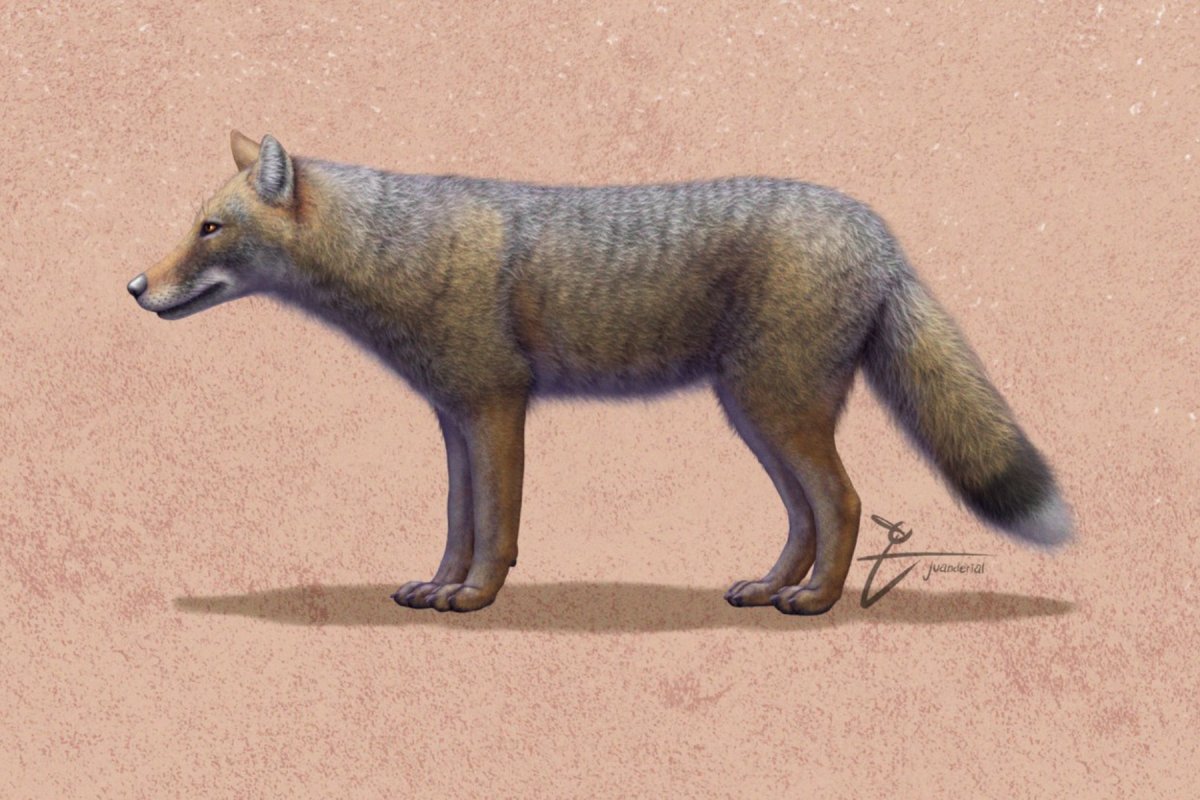Ancient humans in South America may have kept foxes as pets, according to archaeologists.
Their finding comes from excavations at a grave site in northwest Patagonia in Argentina, named Cañada Seca. Archaeologists had previously uncovered there several human remains from around A.D. 450, buried alongside animal companions.
The grave consisted of 18 adults and six younger relatives, as well as dogs and the bones of a fox from the extinct species Dusicyon avus, according to a new paper in the online journal Royal Society Open Science.

This indicates that humans may have had a close relationship with foxes as well as dogs and that this species of fox was found more north than previously thought.
In the paper, the authors wrote: "In this study, we used ancient DNA analysis, morphological examination and stable isotope analysis (δ 13C and δ 15N) to reevaluate the taxonomic assignment of a canid discovered at the Late Holocene burial site of Cañada Seca.
"Previous morphological identifications suggested that it belonged to the genus Lycalopex, but our results conclusively demonstrate that the individual belongs to the extinct fox species Dusicyon avus," the authors said.
In the paper, the researchers describe how new analysis of skeletal remains and genetic data revealed that the ancient humans were buried alongside the extinct fox species. Eleven species of canid are still in South America, while the two species D. avus and Dusicyon australis have gone extinct.
D. avus, the species found to have been buried alongside the ancient humans, was a medium-sized, fox-like creature, weighing between 22 and 33 pounds. It is thought to have gone extinct around 500 years ago.
"The recent extinction of D. avus is likely attributable to the reduction in its geographic distribution caused by climate change and increased anthropogenic impact," the authors wrote.
"The introduction of domestic dogs in South America from Mesoamerica by indigenous people ca 5000 years BP [before the present] and their arrival in Patagonia ca 700–900 years BP may have also led to hybridization events between the two species, potentially further contributing to its extirpation," the authors said.
The presence of this fox species in the grave alongside the humans and species of dogs implies that they may have been considered useful or even pets by the ancient humans in this area,
"The close association with human remains and shared dietary patterns suggests that this was a valuable individual, maybe even a companion or a pet for the hunter-gatherers during the late Holocene," the authors wrote. "Moreover, this record of a co-burial extends previously recognized symbolic interactions between hunter-gatherers and D. avus during the Holocene."
Additionally, the presence of D. avus in the Cañada Seca site was the farthest north this species had ever been found.
"This finding expands Dusicyon avus' known geographical distribution to Patagonia's northern extremity," the authors wrote.
While this strange species of fox may have gone extinct because of the influence of the dog species, it's not likely that interactions between D. avus and domestic dogs at this site contributed to the foxes dying out.
"In terms of interactions between D. avus and domestic dogs, if they interbred or mixed, the absence of viable and fertile hybrid offspring suggests that this process was not a determining factor in the extinction of D. avus populations," the authors said.
"While hybridization may have influenced population dynamics to some extent, its contribution to the extinction event appears to be limited by the lack of fertile offspring."
Do you have a tip on a science story that Newsweek should be covering? Do you have a question about extinct foxes? Let us know via science@newsweek.com.
Uncommon Knowledge
Newsweek is committed to challenging conventional wisdom and finding connections in the search for common ground.
Newsweek is committed to challenging conventional wisdom and finding connections in the search for common ground.
About the writer
Jess Thomson is a Newsweek Science Reporter based in London UK. Her focus is reporting on science, technology and healthcare. ... Read more
To read how Newsweek uses AI as a newsroom tool, Click here.






